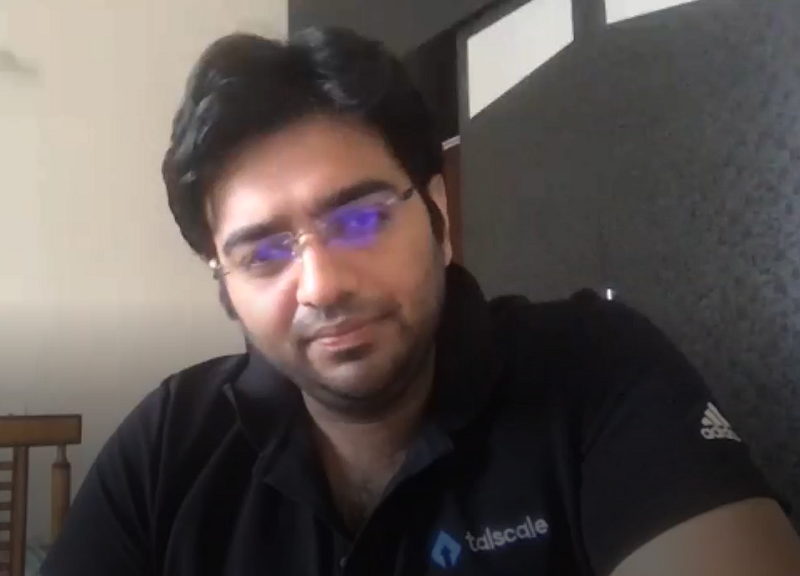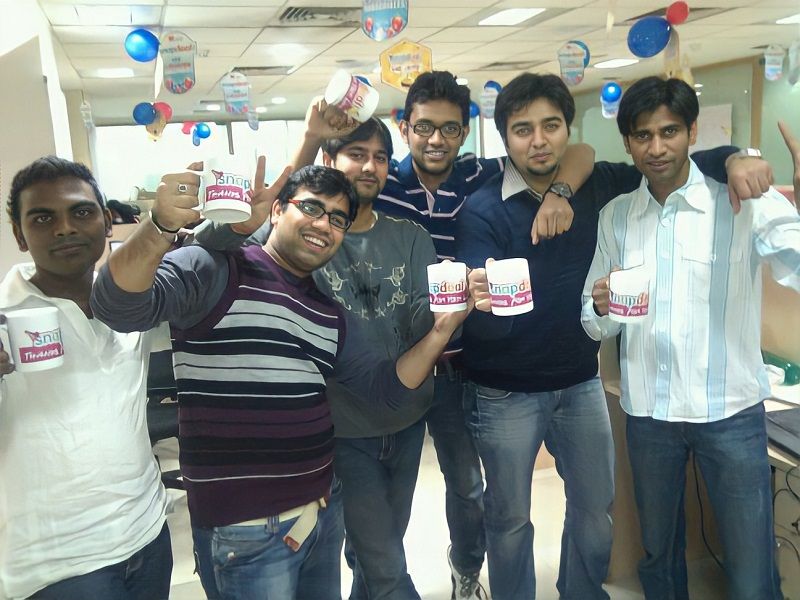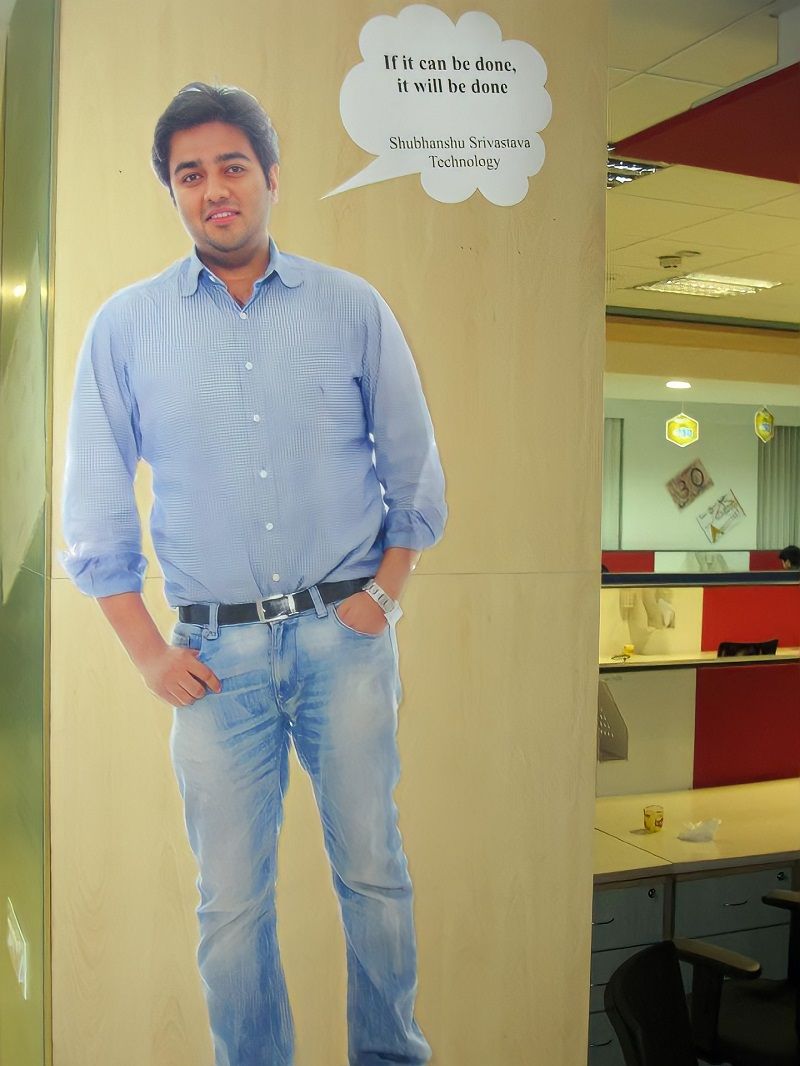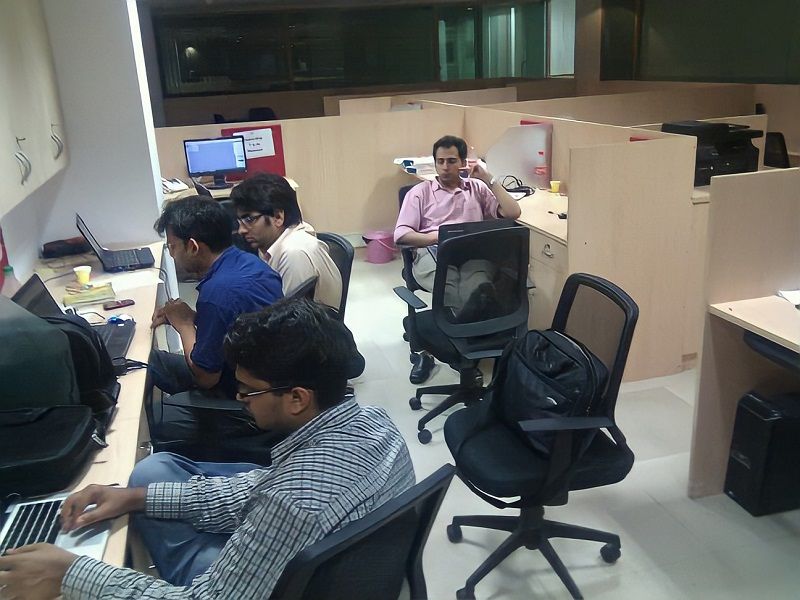Scottish historian Thomas Carlyle once said, “Experience takes dreadfully high school wages, but he teaches like no other.” For Shubhanshu Srivastava, Founder and CTO, CrewScale, his entire career path has been built an ongoing learning curve, achieved with experience.
Ex-Snapdeal engineer and serial entrepreneur Shubhanshu comes from a typical middle-class family with high aspirations for their kids. “I still remember when I chose to work with Snapdeal in 2010, my father was baffled as being an IITian, he was expecting me to join Google or Microsoft. The same thing happened when I decided to do my own startup,” he reminisces.
Today, he has successfully exited from his first venture, Orobind Technologies, which was acquired by HouseJoy in 2016. He is currently building a global remote hiring platform for developers, CrewScale, to bridge the talent gap for deep tech-focussed organisations across the globe.
A global team of 170+, CrewScale connects startups and domain-leading businesses with top tech talent across the world. Established in 2018, the brand has become a Rs 600+ crore company in just three years without funding.
It has its client base spread across the US, India, the UK, Japan, Indonesia, Singapore, and Europe. This includes companies like Swiggy, Ola, BYJU’S, Vedantu, MPL, Capillary, US-based Eltropy, Ellipsis Health, Southeast Asia-based Grab, Coursepad and Europe based Milvik, and Sophia among others.
With a developer network in 80+ countries and in all continents, it has seen a 200 percent growth in revenue, and crossed $6 million in ARR.
“Working from the ground up, I was able to see trends really early, which helped me in building something new every time. Having a problem solving attitude, finding problems surrounding my personal and professional life and then going deeper into tech to solve them -- this is a mantra which has shaped and reshaped my life as a techie so far,” he adds.

During a conversation with YourStory
The first turning point
A typical 90’s kid, Shubhanshu’s early childhood was spent in Kazipur, a small village near Varanasi, where his father worked in the government sector. He got more exposure when his parents shifted to New Delhi.
Getting into IIT Roorkee in 2004 was a dream. But even once that dream was achieved, the path ahead was not clear.
“I was good at tech, but I never had any clear passion for coding or building any new products. So, I opted for Electronics and Communication as a branch without much thought -- the first thing which was offered to me,” Shubhanshu says.
For the first two years, he went with the usual flow of any engineering college. In 2007, when he entered the third year, he got an internship at Newgen Software, a New Delhi-based enterprise tech firm. That changed everything.
The company was setting up an image processing division. Within two months, Shubhanshu not only developed image processing algorithms and libraries to implement scanning and printing drivers for Windows platform, but also filed three patents in Indian Patent Office for Image Processing Solutions. One of the patent applications has even been accepted at the USPTO (United States Patent and Trademark Office).
“This changed the entire orientation I had towards my career. I started looking for real tech companies for my placement. After that internship, I did some more technical projects, and started sharpening my skills towards the direction of tech,” he adds.
After graduation, Shubhanshu worked with Newgen Software till 2010. This was at the time Kunal Bahl and Rohit Bansal were setting up Snapdeal in India as an online deals and coupons website.
“Rohit is from IIT Delhi, and we met earlier during a few inter-college interactions. When he called me, I was already looking to do something of my own but didn’t have the experience to run a business from scratch. Snapdeal brought me that opportunity,” he reminisces.

With Snapdeal team
The learning curve at Snapdeal
Until four years ago, when Shubhanshu was working with Snapdeal, he was responsible for setting up the backend architecture. He shares that one of his team's initial responsibilities was to get rid of the PHP system on which the first deals and coupons website for Snapdeal was built on, and build a system that can be scaled into a multi-billion dollar kind of organisation.
Unlike today, there were no open APIs or mentors to explain things. The team chose Java and MySQL as a backend to build the entire system. Each line of code was written from scratch with a vision to make the system able to handle even 7 billion worth of transactions. The entire system was evolved into micro services like payments, order management, delivery among others
“It was a big dilemma for us to learn and deliver at the same time. But in two months, we were able to set up the new website. This is the basic infrastructure Snapdeal website still runs on. So that was a massive, massive achievement that I would say, we were able to deliver in a short span. Even our Alexa ranking at that point of time was under 10 in the entire country, ” he adds.
Another important milestone was making Snapdeal systems scalable. In 2010, talking about scalable tech infrastructure was actually a big deal. They added capabilities like automation, thus reducing dependence on manual intervention, as well as achieving optimisation. The system was made in such a way that it can actually go for millions of transactions in an hour. But when the load is low, it can also scale back. The team also made sure there is no memory leak in the system.
“This was a real struggle. The website used to go down multiple times as we kept on working at the backend. Also, Snapdeal kept on pivoting its business model, finally ending with an ecommerce marketplace where the backend sub-modules are entirely different. So, we designed the system layer by layer, and changed our entire gear in less than two months,” he adds.
Later, during his tenure at Snapdeal, Shubhanshu also started working on the company’s mobile platform. This was around 2012, when mobile phone penetration started deepening in India and was an active medium to reach the Tier-II and Tier-III audiences which Snapdeal was actively tapping as part of its ecommerce strategy.
“I was taking responsibility for the order management system. Although a sub system of platform, the challenges to make it scalable across the devices, and to be able to work in low data connectivity regions was huge. Again, there was no framework in place. As we started developing our mobile application, Android and iOS came into picture, but the challenges were still there,” he says.
Unlike desktop websites, in mobile applications, there is a high probability of transactional loss. One can lose a network at any time, and it is hard to get back on the same page.
“However, at one point, Snapdeal mobile application was one of the top applications in India getting more than 25 percent orders for the company even from Tier II and Tier III cities. This was a big achievement for me and my team,” he adds.

Human size poster at Snapdeal campus as applause
Taking to entrepreneurship
In 2014, Shubhanshu finally decided to take the plunge and started his own venture with his first company Orobind Fitness Technologies Pvt. Ltd. Together with his college friend and co-founder Satya Vyas, he built an algorithm as well, which gives the user an automated fitness routine based on his current physical condition.
They also built a technology that helped in the selection of the right personal trainer for a user with options of home services. Fitness services were offered on a subscription-based model starting from three months, comprising 8-12 sessions.
“However, this was the time when Urban Company was aggressively expanding in India. In November 2015, it raised $25 million. That was huge. It was a very heavy funding dependent environment at that point of time to scale. And we were not able to raise money,” he admits.
In 2016, Orobind was acquired by Housejoy. After working for a year with Housejoy, Shubhanshu started on his next venture, this time in the HRTech space.
“During Snapdeal, I used to take a lot of campus interviews. There was always a problem of getting junk profiles. So, that's where we started thinking about how we can bridge this gap. That’s where the entire CrewScale foundation started building up,” he adds.
Initially started as GoScale Technologies in 2017, the company built two products -- TalScale and CrewScale. While TalScale is an assessment platform for developers, CrewScale offers a pre-assessed pipeline of developers for enterprises to schedule interviews with.
As Shubhanshu claims, within a year and a half, TalScale was able to make more than 1 million assessments, getting data of more than 1 million techies globally. So, eventually in May 2018, they pushed out TalScale as an independent product, and rebranded the company as CrewScale with a focus on remote hiring.
Both the products have their own tech challenges. While Talscale needs to be compatible enough to be able to give a good assessment experience to techies, CrewScale should be able to help companies close their open positions as fast as possible
“It was really challenging to build a tech stack like that. Also, remote hiring was not very prominent in 2017, so we had to face the adoption gap as well from a business model perspective. But, post COVID-19, things have changed, and the growth curve is on the rise,” he says.

Key learnings
Shubhanshu has seen the rapid adoption of technology in India right at its beginning. He shares some key learnings from his experience -
- Up-skill fast: The pace at which technology adoption is increasing, innovation needs to be fast. You solve one problem, and until you fully analyse the outcomes, you are working on another deep problem. That’s the way the tech companies are working today. Therefore, one needs to really up-skill in real-time and keep on innovating.
- Build clarity of thoughts: Be it a techie or an entrepreneur, there will always be 10 things to choose from. But one should have a laser focus on the end goal, what exactly you want to achieve.
- Keep your fundamentals strong: The scalability of any system depends on how strong the fundamentals are. This will help in getting the right value proposition on how a technology is actually solving the existing problem. Plus, as a techie, this will help in achieving confidence on your systems.
- Value your customers: Building technology solutions in silos is not the right approach. Being a techie, you should interact with marketing teams and try to understand the real problems a customer is facing and then build solutions accordingly.
“Coding is now a passion for me. Still, the first version of any new feature or backend tech application is written by me along with the senior leads in the company. Today, we are living in an information era, but one needs to be smart about the value proposition they can bring with this information, and the innovation that can be created. That’s my only advice to techies,” he concludes.
Edited by Anju Narayanan
Link : https://yourstory.com/2021/07/techie-tuesday-crewscale-cto-shubhanshu-srivastava
Author :- Meha Agarwal ( )
July 06, 2021 at 05:45AM
YourStory



